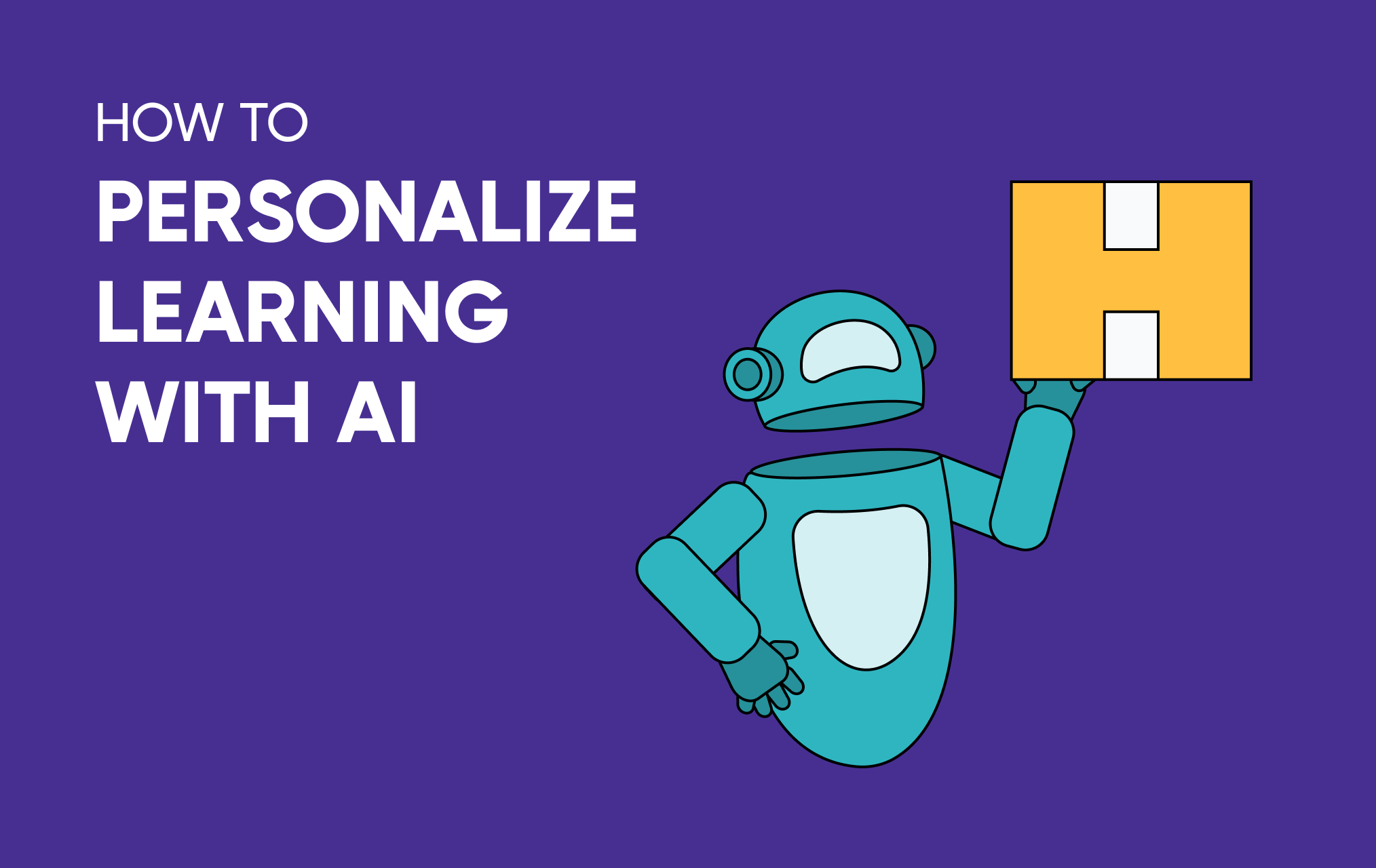
Retail businesses live and die by their sales funnel. Even industries that operate in high-value…
SARA NAWAB
9 mins read
9 mins read

PAUL MARSDEN
February 9, 2023
In today's eCommerce market, providing a personalized shopping experience for customers is key to success. Studies indicate that 89% of businesses observe a worthwhile return on investment when they personalize their campaigns, and 60% of customers will become loyal buyers following an individualized shopping experience.
But how do you do this at scale? The answer is to use artificial intelligence (AI) and personalization tools. Using AI, you can create an engaging and tailored experience for each customer that visits your store and optimize their shopping journey from start to finish.
In this article, we'll explore how to leverage AI and personalization tools to bring your eCommerce store into the new age.
AI and personalization are the future of eCommerce business and customer engagement. With AI, eCommerce businesses can analyze customer data to predict their behaviour and preferences, providing a tailored and personalized experience.
Imagine having the ability to anticipate a customer's needs before they even realize it themselves. That's the power of AI.

And with personalization, businesses can create a one-of-a-kind experience for each individual customer, making them feel valued and appreciated. It's not about the one-size-fits-all approach anymore; it's about catering to the specific needs of each individual.
If you're not incorporating AI and personalization into your business strategy and eCommerce store, you're missing out on a huge opportunity to stand out and connect with your customers on a deeper level.
AI can be a powerful tool for understanding your customer's needs and preferences. By analyzing data such as purchase history, browsing behaviour, and social media activity, AI can help you gain insights into what your customers want and how they make decisions.
One of the key benefits of AI is that it can help you create more targeted and personalized marketing campaigns. From using tools to analyze and score your customers and leads, to creating product descriptions and promotion campaigns entirely with the help of AI, we’re only at the beginning. For example, if you know that a certain group of customers is particularly interested in eco-friendly products, you can create a campaign specifically tailored to that group, and AI can write your copy, create images and give you feedback based on your analytics.

Another benefit of using AI is that it can help you identify patterns and trends that you might not have noticed otherwise. For example, if you (or AI) notice that a large number of your customers are using a specific search term when looking for products, you can optimize your eCommerce store and product listings to better match that term.
There are many personalization tools available in the market today, and here are some of the popular ones.

Use machine learning algorithms to analyze customer behaviour and preferences to make personalized product recommendations on your eCommerce store or through email campaigns.
For example, if a customer has shown interest in casual clothing before, you may recommend new casual clothing items that have recently been added to the store.

A cloud-based platform that provides personalized product recommendations, email marketing, and other e-commerce personalization capabilities.
A cloud-based platform that provides personalized product recommendations, advertising, and other digital experience management capabilities.
A cloud-based platform that provides personalized product recommendations through machine learning algorithms.
A platform that provides personalized product recommendations through predictive analytics.
A cloud-based platform that provides prospecting and cold outreach solutions. They have an AI Email Writer tool that generates reply-boosting emails in seconds. It uses AI to craft personalized and engaging emails, improving marketing performance.
These tools vary in terms of features and capabilities, so it's important to evaluate your specific needs and choose a solution that fits those needs.
Use customer data to segment your email list and send targeted, personalized messages to different groups of customers. Tools such as HubSpot allow you to share personalized content with your contacts, increasing engagement with your website and email campaigns.
This has the potential to increase sales by showing shoppers specific products they may be interested in. If a customer has previously purchased a specific brand, for example, you might send them an email campaign promoting new items from that brand or any discounts and offers that the brand is running.

A cloud-based platform that provides email marketing, automation, and personalization capabilities.
A cloud-based platform that provides email marketing, social media marketing, and event marketing capabilities.
A platform that provides marketing, sales, and service software, including email marketing and personalization capabilities.
A cloud-based platform that provides email marketing, automation, and webinars capabilities.
A cloud-based platform that supports email marketing by providing bulk email finding, bulk email verification and LinkedIn prospecting services.
A platform that provides email marketing, unlimited mailboxes, unlimited warmups, a limitless multi-channel infrastructure, and a unibox to handle your entire revenue cycle in one place.
Implement live chat and chatbots on your eCommerce store to provide real-time personalized assistance to customers. In your business, this might look like using a live chat to help customers ask questions about a product, and the chatbot would be able to provide an immediate answer or direct the customer to the right page.

Chatbots save time and energy by addressing customer concerns quickly and effectively. Intercom’s customized bots help you scale your business by speeding up customer support processes, engaging leads, and increasing efficiency.
A cloud-based platform that provides live chat, in-app messaging, and chatbots for customer support and engagement.
A cloud-based platform that provides live chat and chatbots for customer support and engagement.
A cloud-based platform that provides live chat and chatbots for customer support and engagement.
A cloud-based platform that provides live chat and chatbots for sales and marketing.
Use natural language processing to understand customer queries and provide more relevant search results.
Let’s say that customer types in "casual shoes for men", then your store's search algorithm could understand the intent behind the query and return results for men's casual shoes, rather than all shoes for men.

Use dynamic pricing algorithms to offer personalized discounts to customers based on their behaviour and preferences.
A good example of this would be when a customer has shown a preference for a certain brand, you may offer them a discount on that brand's products. Additionally, you may also take into account their purchase history and location to provide personalized pricing for them.

AI and personalization tools can greatly impact eCommerce shipping. For example, they can be used to optimize shipping routes, predict delivery times, and personalize eCommerce shipping options for customers, resulting in faster and more efficient delivery.
AI can also be used to predict customer demand, allowing eCommerce businesses to better plan for and manage their inventory, reducing the chance of stockouts and overstocking.

Using these tools to personalize the customer's shopping experience, you'll build stronger relationships with your customers and increase their likelihood of returning to your eCommerce store.
Creating a personalized shopping experience for your customers is extremely important as it makes them feel valued and understood. When you make customers feel this way, you can build trust and loyalty with them, increasing the chances that they’ll come back for more business.
This not only leads to more sales from past clients but can also create a great word-of-mouth marketing strategy for your business. Happy customers will tell their friends and family about their positive experiences, which can lead to new business.
According to Evergage, personalization campaigns are not only measurable but have led to an impressive 86% lift in business results for eCommerce businesses.
Creating a personalized shopping experience for your customers is not only important but also a smart investment. It will make your customers happy while bringing in more business in the long run. It's a win-win situation, and we highly recommend investing in it to grow your eCommerce business!
When creating a personalized shopping experience for your customers using AI and personalization tools, there are a few key things to keep in mind:

By using AI and personalization tools, you can create a tailored shopping experience for your customers that will increase their satisfaction and likelihood of returning to your eCommerce store. These tools can help you understand your customer's needs and preferences, allowing you to provide them with the products and services they're looking for.
By building stronger relationships with your clients, you can create loyal brand advocates who will spread the word about your eCommerce business. Furthermore, AI and personalization tools can help you optimize your eCommerce shipping operations, resulting in an improved customer experience.
If you're not already using AI and personalization techniques, now is the time to start! With AI taking over headlines recently, it’s the perfect chance for you to jump on the bandwagon.
Learn more about how eShipper can help you improve your customer’s experience today!